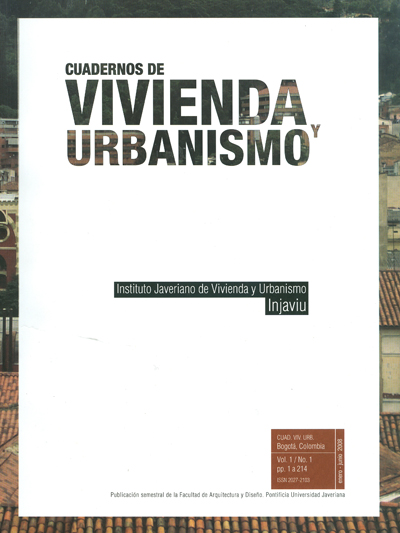Resumo
A reflexão sobre os processos de melhoramento dos bairros, adiantados em nossas cidades, motiva a procura de novos cenários de gestão, crescimento de investimento e desenvolvimento inclusivo. Assim, avanços de ordenamento territorial e a definição da norma urbana de Bogotá, para as Unidades de Planejamento Zonal de urbanização incompleta, a decisão de gerar espaços urbanos reestruturastes e exercícios de modelação da aplicação normativa, visualizam oportunidades de reequilíbrio do território e geram novos espaços públicos, solos para equipamentos sociais e diversas ofertas de vivenda. Evidenciam também a necessidade de fazer ajustes institucionais e de gestão para a implementação de projetos. O reto é reconhecer seu potencial e a urgência de comprometer-se em processos de gestão, onde os atores públicos e privados, liderados pelas entidades do setor público e acompanhados pela academia, encontram formulas propositivas que permitam aos cidadãos residentes das periferias, participarem de forma decisiva em condições urbanas de qualidade.
Esta revista científica se encuentra registrada bajo la licencia Creative Commons Reconocimiento 4.0 Internacional. Por lo tanto, esta obra se puede reproducir, distribuir y comunicar públicamente en formato digital, siempre que se reconozca el nombre de los autores y a la Pontificia Universidad Javeriana. Se permite citar, adaptar, transformar, autoarchivar, republicar y crear a partir del material, para cualquier finalidad (incluso comercial), siempre que se reconozca adecuadamente la autoría, se proporcione un enlace a la obra original y se indique si se han realizado cambios. La Pontificia Universidad Javeriana no retiene los derechos sobre las obras publicadas y los contenidos son responsabilidad exclusiva de los autores, quienes conservan sus derechos morales, intelectuales, de privacidad y publicidad.
El aval sobre la intervención de la obra (revisión, corrección de estilo, traducción, diagramación) y su posterior divulgación se otorga mediante una licencia de uso y no a través de una cesión de derechos, lo que representa que la revista y la Pontificia Universidad Javeriana se eximen de cualquier responsabilidad que se pueda derivar de una mala práctica ética por parte de los autores. En consecuencia de la protección brindada por la licencia de uso, la revista no se encuentra en la obligación de publicar retractaciones o modificar la información ya publicada, a no ser que la errata surja del proceso de gestión editorial. La publicación de contenidos en esta revista no representa regalías para los contribuyentes.


